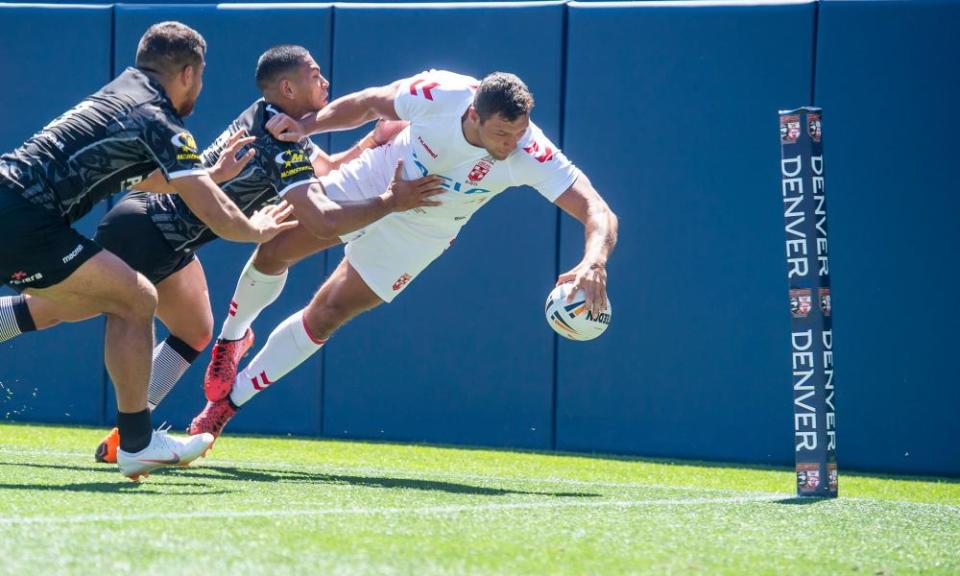England show best of rugby league in dazzling Denver defeat of New Zealand

For once the result was not necessarily the priority for England in Denver on Saturday night. While the performance and the 36-18 victory over New Zealand certainly ticked the boxes before this autumn’s home Test series against the same opponents, this was more about showcasing the sport to a new audience. The early signs from the United States seem encouraging.
A crowd of 19,320 may not seem that significant at first glance but, considering this was Denver’s first exposure to rugby league and no attendance for any rugby game of either code in Colorado has been greater, it is hard to argue the game was anything other than a success.
Rugby league’s biggest challenge now was outlined by Wayne Bennett, the England coach. “We need people to stand up for our international game,” he said. With this match facing such strong opposition from the Australian NRL over concerns about the travel and altitude, the sport has to build on the momentum it has created.
“If we started State of Origin now, it would never get off the ground,” Bennett said. Indeed, the crowd was far greater than the 12,349 who watched Queensland and New South Wales play in California in 1987 because, back then, Origin was perceived as a pointless exercise. Now, it is the pinnacle of the Australian game and, perhaps, a lesson in persistence for the sport at international level.
With attitudes shifting towards the international game after the success of last year’s World Cup, ensuring a return to the United States next year as soon as possible is the priority. The 2025 World Cup is being staged in the US and Canada, the ultimate moment for the game’s venture into North America. What happens between now and then is crucial.
“I just hope we can come here again to start putting an imprint down on this place,” Bennett continued. “If we don’t have a global product, we won’t have a product within 20 years.” This was not about how the game was perceived in the living rooms of Batley, Wigan and St Helens but how the American public took to the sport.
They should have been impressed from the all-action 80-minute display of Sam Burgess to Ryan Hall’s magnificent flying finish in the corner and the impressive debuts of Jake Connor and Tommy Makinson. England fans have plenty to be excited about at international level – but so too, it seems, does the game as a whole.
With a World Cup seven years away, the potential of accepting teams from areas like New York – which already has a bid lodged with the RFL – into the British game is also important. But ultimately the sport’s chance of long-term success lies with the international game. England and New Zealand gave it a significant shot in the arm on Saturday – but the sport must act decisively to ensure the momentum is not lost.

 Yahoo Sport
Yahoo Sport 





































